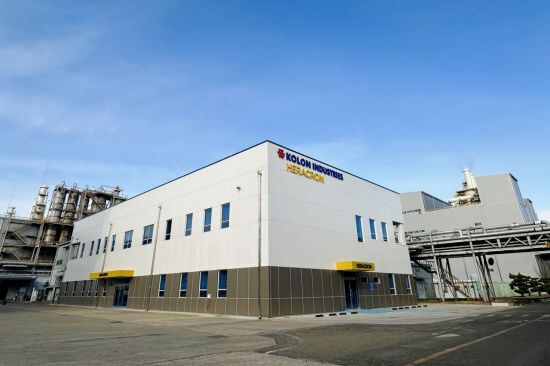
Kolon Industries, a leading South Korean materials company, has successfully completed the expansion of its aramid pulp production capacity, marking a significant step forward in its pursuit of the high-value materials market.
The company announced on [date] that it has invested approximately 22 billion won in its Gumi plant to increase its annual aramid pulp production from 1,500 tons to 3,000 tons. The company has also begun commissioning the facility to supply customers with the highest quality products.
Aramid pulp is produced by physically abrading aramid fibers into a granular form. It is primarily used as a reinforcement material in automotive components such as brake pads, gaskets, and tire rubber.
Aramid fibers, often referred to as "super fibers," are renowned for their exceptional strength, capable of stopping bullets, as well as their high heat and abrasion resistance, making them suitable for demanding applications. The complex manufacturing process and high technological barriers to entry contribute to the product's high value.
Brake pads made with aramid pulp can reduce dust generation by up to 70% compared to conventional products, making them compliant with the upcoming Euro 7 emissions regulations, which will come into effect in November 2026. As the only domestic company in Korea to mass-produce aramid pulp, Kolon Industries plans to commence full-scale product delivery from next month following the completion of commissioning.
In late 2023, Kolon Industries doubled its annual aramid fiber production capacity from 7,500 tons to 15,310 tons, establishing itself as the largest producer in the country.
[Copyright (c) Global Economic Times. All Rights Reserved.]






























